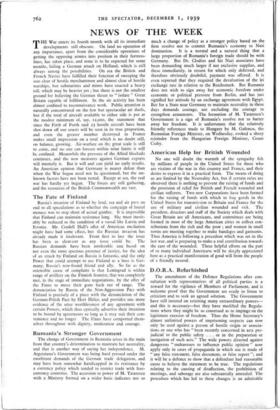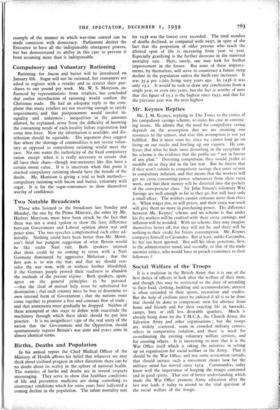D .0 .R.A. Refurbished
The amendment of the Defence Regulations after con- sultation with representatives of all political parties is a reward for the vigilance of Members of Parliament, and is welcome proof that the Government are ready to listen to criticism and to seek an agreed solution. The Government have still insisted on retaining many extraordinary powers— and this is necessary—but they have modified the Regula- tions where they might be so construed as to impinge on the legitimate exercise of freedom. Thus the Home Secretary's almost unlimited powers of imprisoning suspects can now only be used against a person of hostile origin or associa- tions or one who has " been recently concerned in acts pre- judicial to the public safety . . . or in the preparation or instigation of such acts." The wide powers directed against dangerous " endeavours to influence public opinion " now apply only in cases of propaganda in which use is made of " any false statement, false document, or false report "; and it will be a defence to show that a defendant had reasonable cause to believe the statement to be true. The regulations relating to the causing of disaffection, the prohibition of meetings, and sabotage are also substantially amended. The procedure which has led to these changes is an admirable example of the manner in which war-time control can be made consistent with democracy. Parliament desires the Executive to have all the indispensable emergency powers, but has demonstrated its ability in this case to prevent it from assuming more than is indispensable.













































 Previous page
Previous page